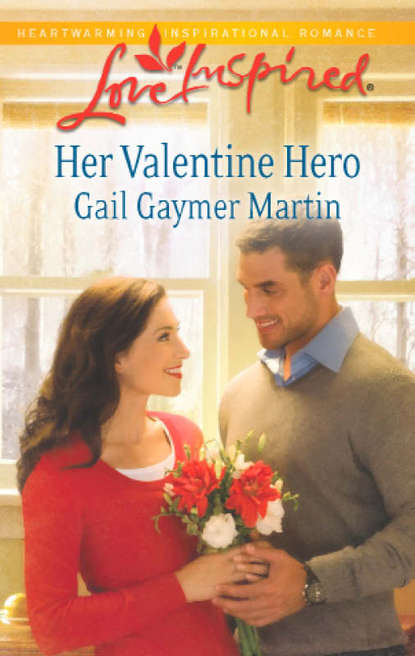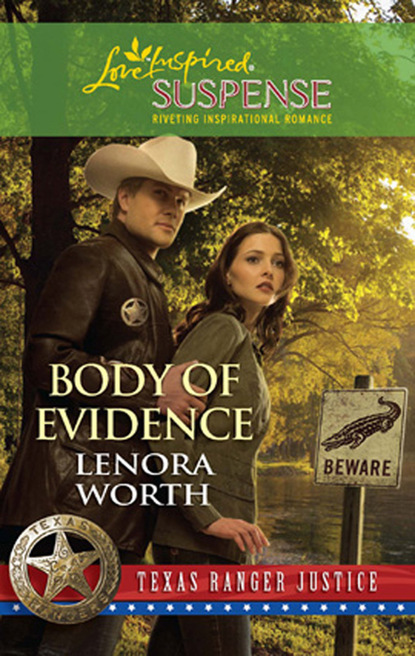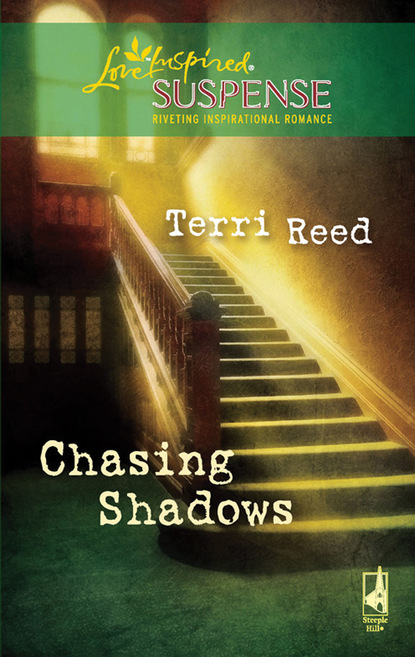
Полная версия
Gone To Glory
“I like peanuts.” Rafe held out his hand, Emma took it. “Lord, thank You for the food and for all Your bounty,” he said. “And thank You for Calvin, who never ceases to amaze us. Amen.”
Emma tasted a forkful of the new dish. “Hmm. I’m not sure I can eat this. It tastes…odd. Perhaps Calvin used too much lemongrass.”
Rafe took a bite and promptly made a face. “By any chance do you have the makings of a grilled-cheese sandwich?”
“A wonderful idea.” Emma leaped from her chair. “Two grilled-cheese sandwiches coming up.”
She found a package of sliced Swiss cheese and soon had two sandwiches grilling in a heavy cast-iron skillet. “This won’t take long.”
The inside kitchen door opened without warning and Christine Stanton’s head appeared. “Something smells delicious,” she said.
“True.” Emma gestured toward the casserole full of Southern Fried Thai Chicken. “But Calvin’s latest experiment tastes like an explosion in a spice shop. We’re going to have grilled-cheese-and-tomato sandwiches instead.” She smiled. “Want to join us for lunch, Christine?”
“Thanks, but I have a lunch date with Daniel Hartman and George Ingles at Glory Community Church.” She beamed at Emma. “This is first time since I retired that I get a chance to offer legal advice. I’m looking forward to being a real lawyer again.”
“Ah. The lawsuit against McKinley Investments.”
“My one and only case,” she said.
Rafe shifted his chair so that he could see Christine without straining his neck. “How goes the battle?”
“It goes slowly,” Christine replied. “My big problem is the alleged murder of Quentin Fisher. Because of that, McKinley Investments is taking their own sweet time responding to our letters of complaint. I presume that their lawyer is telling the firm to wait until all the facts come out at Tony Taylor’s murder trial.” She looked up happily. “I think we can speed things along by encouraging the McKinley firm to settle.”
“Are you sure you can’t have a sandwich with us?” Emma said.
“Nope. I heard voices in the kitchen and dropped in to say hello—but they expect me up at the church, because I’m bringing lunch.” She punctuated her words with a salute-like wave. “Gotta go.”
Emma waved back. “See you later.” She kept waving as Christine let the kitchen door close behind her.
“That woman is a gift from God,” Rafe said.
“Both for the church and me,” Emma said.
Emma had married Rafe knowing they faced a difficult problem. When she moved to his charming house with its fantastic view of Albemarle Sound, there would be no one on duty at night at The Scottish Captain. No one to admit late arrivals or guests who’d lost their keys. No one to call in case of an emergency. No one to provide an extra blanket or pillow or towel to a guest who needed one.
And Emma had no choice but to move: the Captain’s third-floor owner’s apartment was simply too small to accommodate three people—especially when one of them was a lively teenager. Kate, Rafe’s fifteen-year-old daughter had her own bedroom—and her own bathroom—in the charming blue-clapboard Victorian bungalow on Front Street that Rafe owned.
Christine had checked into the Captain a month before the wedding, told Emma she was in the process of moving to Glory, and asked where she might find an apartment in town. Emma quickly offered her the Captain’s owners’ apartment at a remarkably low rent—with one stipulation. “You’ll be the Captain’s night manager,” she’d explained. “Your duties will be simple. Help the guests when I’m not here.”
Christine agreed immediately—and had proven to be ideal for the job.
Emma lifted the cooked sandwiches from the skillet and joined Rafe at the table. “Do we need to say thanks again?” she asked.
Rafe began with a big smile. “Thank You, God, for grilled-cheese-and-tomato sandwiches, and for not requiring that we eat Southern Fried Thai Chicken. Amen.”
Rafe took a bite of his sandwich. “Perfection!”
“I agree. We should frame these sandwiches rather than eat them.”
“Speaking of frames…” Rafe said. “Tell me about the fifth guest—the gal from Chicago who’s driving a blue rental. The one who wants to be a travel photographer. Is that why she spent the morning driving around Glory?”
Emma nodded. “She’s assembling a portfolio of photos of the Albemarle region.”
“I’ll tell Angie Ringgold that she’s not a master criminal. Angie was on patrol this morning. She saw the rental car looping back and forth through Glory. She said that she followed the car down Main Street at least five times. Angie really got suspicious when she saw it slow down in front of the bank.”
“Did she intercept the driver?”
“Angie was about to stop her car, but then it surprised her and drove to the Captain. The driver went inside and came out carrying a bunch of camera gear. Angie last saw her taking a picture of Moira McGregor in Founders Park.”
“Poor Angie.” Emma laughed. “For your information, the lady’s name is Lori Dorsett. She’s from Chicago. I don’t know much about her, except that she was divorced last year and is trying to launch a new career as a travel photographer. She plans to stay in Glory for a month or so and take a lot of pictures.”
Rafe took another bite of his sandwich and washed it down with a gulp of spiced iced tea. “Angie told me that the gal is a real looker—is that true?”
“I wouldn’t know,” Emma said airily.
“Wow! She must be gorgeous.”
Emma balled up her napkin and threw it at Rafe’s head.
It had been a snap decision—but an inspired one, Lori thought—to tell Reverend Hartman that she wanted to take pictures of the stained-glass windows from outside the church. Now she was perfectly positioned on the church’s lawn, adjacent to King Street, to listen in on the meeting in the pastor’s office.
Lori reached deep into her oversize black-leather camera case, into a small compartment near the bottom. The gadget she found resembled a plastic candy bar but was the single most expensive item in the bag. It was a bugging device—a remote sound monitor—that could surveil a room a hundred yards away. She began to mount the innocuous-looking gadget on the top of her tripod.
Her hand slipped. She caught the remote sound monitor before it hit the ground.
Easy girl. You’re still shaking.
Lori inhaled slowly, counted to five and then exhaled. She’d almost lost her composure when, without any warning, she was introduced to George Ingles in the reverend’s office. She hadn’t expected to run into the one person in Glory she absolutely, positively had to meet. And amazingly he had turned out to be a flirtatious jerk.
Perhaps that will come in handy someday?
Two more gifts of fabulous luck. In fact, things were going almost too well. When would the good fortune run out?
Lori drove the unpleasant thought out of her head and asked herself a more productive question: what were George and the pastor meeting about?
She immediately offered herself an answer: the church’s finances. What else would Daniel Hartman have to talk about with George Ingles?
“You’ll know for sure in about thirty seconds,” she murmured, “if you can get this silly gadget working.”
Lori tried again to attach the tripod’s screw to the bottom of the remote monitor. This time the threads engaged; she tightened the screw gently and made sure that the working side of the device was pointed toward Reverend Hartman’s window. She knew that there were two nearly invisible lens openings on the front edge. One lens had an infrared laser behind it, the other a sensitive optical detector.
The device was really quite simple in principle: it directed an invisible beam of infrared light at the pastor’s office window and picked up some of the light reflected off the glass. The cleverness of the device lay in its ability to detect tiny vibrations of the window glass caused by the sound waves generated by people talking inside the room.
She placed a small earpiece in her left ear—the same kind of wireless earphone that many cell phone users wear—and activated a small switch on the bottom of the sound monitor. Now came the tricky part: she would have to aim the laser beam at the pastor’s window while nonchalantly appearing to do something else.
She picked up her camera and stared at its controls while she slowly moved the tripod’s pan and tilt head.
Lori’s earpiece came to life. “…she’ll be here with lunch soon, George. She’s bringing sandwiches from Snacks of Glory. I like them even better than their burgers.”
A burger would taste terrific about now.
Lori abruptly felt hungry. She wished that she had bought a Glorious SOGgy Burger when she had the chance. All she had with her now was a half-eaten granola bar and a small bottle of water. They would have to do until the meeting was over. The conversation going on in the pastor’s office was far more important than her hunger.
“Then maybe we should talk about a special stewardship campaign before she arrives.” Lori immediately identified the speaker as George Ingles. It was easy to tell him and the pastor apart because Reverend Hartman’s voice dripped with authority. What else would you expect from a man who had been a U.S. Army chaplain for more than twenty years and had risen to the rank of full colonel?
She recalled the brief encounter in his office. Daniel Hartman also moved with authority, and he was better-looking than any clergyman she could remember—not that she had dealt with all that many men of the cloth. She had his photograph—a large color shot of him in his full dress Army uniform—safely stored in her laptop computer, along with the rest of the dossier that Kevin Pomeroy had provided. Hartman was forty-eight, but looked much younger. He was over six feet tall, fair-complected, with lively hazel eyes and a full head of reddish-brown hair. He had grown up in Nashua, New Hampshire, earned a bachelor’s degree in philosophy from Dartmouth, a master’s in theology from Gordon-Conwell and, more recently, a doctor of ministry degree from Erskine Seminary. He had also earned two Purple Hearts, one in Panama, the other in Iraq, where he’d been wounded during the first Gulf War. Lori recalled the details from the dossier Kevin had provided and chuckled to herself. She probably knew more about the good Reverend Hartman than most of the members of his congregation.
His powerful voice filled Lori’s ear again. “Well, you’re our financial guru, George. The church’s Elder Board will agree to do what you recommend. Do you really think we need a special campaign?”
“Yeah, unfortunately we do. Hopefully, a special fund-raiser will replenish enough money to let us pay the bills and honor the pledges we made those poor churches.” He added, “I foresee only one hitch. Our members might hold back their giving if they haven’t forgiven my mistakes.”
Lori snorted. Forgive George Ingles? I would have booted him out of the church building. He’d made some truly stupid fast-buck investments for the church, but it was hard to determine whether he should have known better.
Lori flinched as a voice behind her said, “Hi, Lori. How goes the picture-taking?”
Lori felt her surveillance training kick in. She willed herself to turn around slowly, seemingly without concern or surprise. She simultaneously took a step away from the tripod. A moment later she was gazing at Christine Stanton’s smiling face.
“It’s too soon to tell, Christine. I’m trying to figure out which lens and filter combination I need to photograph the stained-glass windows. After I take the outside shots, I’m going to shoot them from the inside.”
“Well, have fun.”
“I always do.” Lori noticed that Christine was carrying a shopping bag labeled Snacks of Glory.
Christine Stanton was the “she” bringing the food to the meeting.
Lori watched Christine walk toward the church and forced herself not to look at the remote sound monitor on the tripod. Instead she made a show of rummaging in her camera case among her various lenses and filters. She could hear walking and shuffling sounds in her earpiece, but no voices. What were Daniel and George doing? she wondered.
“Hey! What are you guys doing next to the window?” Christine’s voice boomed through the earpiece. “Don’t tell me! You’re watching our pretty new visitor take pictures. Since when did you two become dirty old men?” She began to laugh.
“She’s certainly worth looking at,” George said.
“Uh-huh,” Christine said. “I promise that I won’t tell Margo what you said or recount the excitement in your voice when you said it.”
“Ah…she told us that she’s from Chicago and staying at the Captain,” Daniel said. “Do you know anything else…uh, interesting about her?”
“Wow, padre! She got to you, too.”
Lori resisted a powerful urge to look at Daniel Hartman’s window. Was he still staring at her?
Christine kept talking. “Well, I know that Lori Dorsett was recently divorced and that she probably took a bundle of money from her ex, because she has enough fancy photographic equipment to open a shop. She claims that she wants to be a travel photographer. I’ve no idea why she started with Glory as a subject, but she’s been taking pictures all over town. I haven’t seen any, so I don’t know if she’s any good. Maybe I’ll have an opportunity to see her work later.”
“Not a chance!” Lori muttered. She had a story ready to respond to any requests to look at her photos. Sorry, but I never let anyone see my raw digital photographs. I’ll be delighted to show you the final results after I’ve had a chance to edit and crop them.
“Your instincts are good,” Daniel said. “What do you think about her?”
“I think she’s a trophy wife who’s coming out of a bad marriage and is trying her best to start fresh. She’s a little ditzy, but that’s not her fault.”
Lori ignored a sudden pang of unease. She never felt comfortable when people bought her lies “hook, line and sinker,” like Kevin—a committed fisherman—loved to say. It seemed too easy to lie to good people—they trusted you, assumed you were telling the truth.
Well, Lori Dorsett was one of the “good guys,” too. Her investigation would ensure that justice was done in the upcoming lawsuit. All eyes were focused on McKinley Investments—but no one thought about the insurance company that stood behind the firm. If McKinley Investments were forced to pay damages to Glory Community Church, the money would come from the Chicago Financial Insurance Company. As one of three investigators in the Loss Control Office, Lori had the job of making sure that the claims were legitimate.
Why are ordinary folks so willing to cheat insurance companies?
It was a question that Lori had often asked herself during her three years on the job. In assignment after assignment, she’d seen “honest people” file false claims. Every new investigation made her more skeptical, more willing to be suspicious of everyone involved in the case.
Mistrust is an occupational hazard for someone with your abilities.
Lori took pride in her surveillance and investigatory skills. She had acquired them during a twelve-year stint as a special agent in the U.S. Army’s Criminal Investigation Division. The formal photograph of her in a dressblue warrant officer’s uniform looked just as soldierly as the picture of Colonel Daniel Hartman that currently resided in her computer.
Too bad he’ll never get to see the photos side by side.
Lori’s earpiece blared once more. “Who ordered the egg salad on rye?” Christine asked.
“That would be me,” George said.
“Then you must be the pork barbecue on a roll, with all the trimmings.”
“Guilty as charged, Counselor,” Daniel said.
Lori heard a stream of crumpled-paper sounds—followed by a series of chomping noises—that made her feel hungry once again.
“We might as well get started,” Daniel said. “Does anyone have anything new to report?”
“Well…” Christine replied. “First, I can report that I’m making good progress learning about securities law. I’m researching as fast as I can—this isn’t the kind of law I’ve practiced before.”
Lori sniggered. “That’s nice to know.”
Christine went on. “Second, I’ve verified that Quentin Fisher had a great reputation. I haven’t found a hint of other deceptive business practices anywhere in his long career. There are no other complaints against him. I wonder why he chose the church to begin his crooked practices?”
Lori murmured, “Now, that’s an excellent question.”
“I assume we’ll learn why as our lawsuit progresses,” Daniel said, “which brings us to the main item on our agenda—the lawsuit itself.”
“Quentin Fisher,” Christine said, “had a duty under the law to recommend suitable investments to the church. He breached that responsibility when he sold us excessively risky corporate bonds. We planned to spend the money within a year or so—we needed good, safe, shortterm investments.”
Lori retrieved a tablet computer from her camera case and began to jot down notes about what Christine said should some of it be useful later.
Christine continued. “The church signed a brokerage agreement with McKinley Investments that says all disputes between the parties will be settled through binding arbitration by a panel of arbitrators rather than a courtroom trial. The upside of arbitration is that it takes months instead of years. The downside is that we can’t appeal a decision that goes against us. However, the great majority of advisor lawsuits are settled before arbitration begins. That’s our goal.”
“And ours, too, honey,” Lori muttered. She adjusted her earpiece, which had slipped out of the center of her ear.
THREE
Daniel Hartman hated prisons. During his years as an Army chaplain, he had visited prisoners in dozens of Army stockades. His trip to see Tony Taylor in the Albemarle District Jail, in Elizabeth City, took him to his first civilian lockup, but he knew exactly what to expect: the clank of steel doors, the embarrassment he felt as he passed through the metal detectors, the harsh lighting in the green-painted meeting room that would give him a headache, the smell of sweat that seemed to permeate the air, the hint of disinfectant and the oppressive atmosphere that he knew would stay with him long after his return to Glory.
Daniel put up with it all because Tony had changed his mind and requested his visit. At first, Tony had wanted no one but his lawyer to “see him caged up,” as he put it. But yesterday, surprisingly, he had sent a message via his lawyer: “Please visit ASAP. I need your help.”
Daniel had mentally prepared himself by praying for thirty minutes in his office and again during the drive along State Route 34A. But he was still surprised by Tony’s appearance. Daniel felt a wrench of anguish to see Tony, who usually wore fancy vests and cashmere sweaters, dressed in a prison jumpsuit. The big man, a retired naval officer, seemed to have diminished in size. Worst of all, his expression seemed beaten down and more than a bit hopeless.
“Hello, Tony,” Daniel said. They were required to sit on opposite sides of a small metal table. “No handshakes,” the correction officer had said. “No contact.” The officer had left them alone, but he was watching through a glass panel in the door.
“Thanks for coming,” Tony said. “You don’t have to sugarcoat your words—I know I look like an abandoned shipwreck.”
Daniel decided to go along with Tony’s wishes. “I’d ask how you’re doing, but your appearance speaks volumes. You look like you aren’t sleeping well.”
Tony’s shoulders sagged. “I mostly lie awake at night thinking about the Glory at Sea Marina. The work’s got to be piling up. I can’t expect my wife to do it for me. Rebecca puts in backbreaking hours at the hospital.” He shook his head. “If I don’t get out of here soon, I’ll lose my business.”
Tony slapped his palm against the tabletop. The noise reverberated through the small room. “I shouldn’t be here. I didn’t kill Quentin Fisher. I had nothing to do with the accident at the marina.”
Daniel nodded, not sure what to say.
“Ask yourself this, Reverend. Why would I want to kill Fisher? He hadn’t succeeded in cheating me. All I cared about was getting the church’s money back. For that, I needed him alive, not dead.” He held up a finger. “But…if I had wanted to kill the skunk, why would I choose a method that put my whole marina at risk? The explosion could have easily started a fire that engulfed all of the docks.” He held up a second finger. “And another thing—I’m not stupid. Why kill Fisher in a way that calls attention to me?”
Daniel nodded again. Everyone in Glory had theories about the “accident,” as Tony called it. The facts, such as they were, had been widely reported in the Glory Gazette and on local TV stations.
Three weeks earlier, Tony’s personal boat—an elegant 23-foot-long classic wooden runabout named Marzipan—had exploded at Tony’s marina. There wasn’t any uncertainty about the explosion itself. Gasoline vapors had collected in the bilges and inside the boat because of a leaking fuel line. A random spark had ignited the vapors and triggered the explosion. The real mystery, however, centered on why Quentin Fisher had been sitting in Marzipan’s cockpit when the small boat was consumed by a fireball that shot more than fifty feet into the air.
Quentin Fisher had become Tony’s financial adviser a few weeks prior. All their dealings had been over the telephone or in the conference room in the McKinley Investments office in Greenville.
Quentin had no reason of his own to travel to the Glory at Sea Marina on the day of the explosion. He was there because Tony had sent him an e-mail inviting him to the marina. The police had subpoenaed Tony’s Internet records and had found a copy of the e-mail in the “Sent Messages” directory on Tony’s computer.
Tony interrupted Daniel’s musing. “I can see the wheels in your head turning, but none of the so-called evidence that I killed Fisher is right. I didn’t send him that e-mail. It was sent on the Thursday afternoon before the accident—but that’s when I was out in Albemarle Sound testing the rebuilt engine in a big motor cruiser.” Tony added, “And I certainly didn’t send him a faxed map of the marina.”
Daniel didn’t see the point of arguing with Tony, but what could explain away the evidence that the police had? The marina’s telephone records showed that—also on the previous Thursday afternoon—a one-page fax had been sent from Tony’s fax machine to Quentin’s fax machine. Moreover, an employee at the boatyard saw Quentin Fisher walking on the docks a few minutes before the explosion. Quentin approached him and asked for help finding a boat named Marzipan. The employee noted that Fisher’d had in his possession a faxed diagram of the marina’s docks.
Tony rested both hands flat on the tabletop. “And let me tell you the most relevant fact of all. Marzipan was worth a fortune. She was my pride and joy: I’d rebuilt her personally. Who in his right mind would destroy a genuine antique to kill a slime ball like Quentin Fisher?”
Daniel nodded once more. Everything Tony said made sense, but then, each of the prisoners he’d visited over the years could spout a dozen good reasons that proved his innocence. Most of them would conveniently ignore an especially strong fact or two. Tony hadn’t mentioned the garage-door transmitter.
When arson investigators from the Glory fire department—supplemented by two evidence technicians from the North Carolina State Bureau of Investigation—sifted through the debris, they found a radio-controlled detonator in the remains of Marzipan’s bilge. The detonator had been built using a garage door remote-control system. The police, acting under a search warrant, rummaged through Tony’s office at the marina. They found a matching garage-door transmitter tucked behind a row of books on his bookshelf.
Daniel found it difficult to look Tony squarely in the eye. He didn’t want to believe that his friend was guilty of murder, but the evidence seemed…well, “overwhelming” was the word that Rafe Neilson had used. Daniel had had a heart-to-heart talk with Rafe, who had been remarkably forthcoming.






